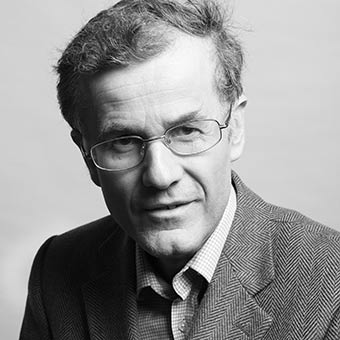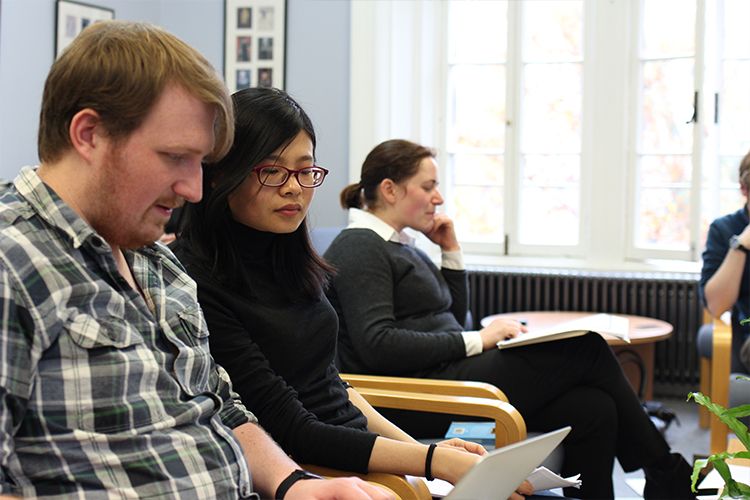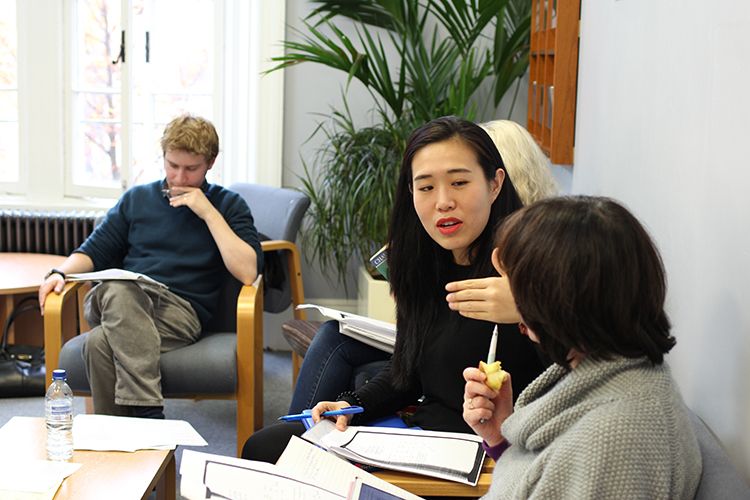Chinese Makars

The art of cross-cultural translation.
It is the task of the translator to release in his own language that pure language that is under the spell of another, to liberate the language imprisoned in a work in his re-creation of that work.
Walter Benjamin, Illuminations: Essays and Reflections
It all started with an invitation to play a game; to translate classic Chinese poetry into Scots language. This was the challenge set by academic and poet Professor Robert Crawford for creative writing students at the University of St Andrews.

Inspiration
The idea for the challenge occurred to Crawford while working on Chinese Makars, a collaborative project with Edinburgh-based photographer and printmaker Norman McBeath.
Inspired by the work of Scottish photographer John Thomson, it is a project that explores the relationship between photography and poetry.

Thomson travelled extensively in East Asia in the 1860s and was one of the first photographers to document life in that corner of the world. Over the course of ten years, he captured a wide range of subjects from the King of Siam to some of the earliest known images of the ancient cities of Angkor in the Cambodian jungle.
The Wellcome Library have undertaken an extensive conservation project of Thomson’s work, digitising 660 of his original negatives.
The full collection can be found on the Wellcome Library’s website.
Crawford’s challenge was also inspired by work being undertaken elsewhere in the University of St Andrews’ School of English. Song Da, a visiting scholar from Beijing, was researching the translation of Scottish literature into Chinese.
The creative process
Creative writing students and Chinese speakers from across the University were invited to attend a series of workshops at the School of English to explore classic Chinese poetry and experiment with translation into the Scots language.
Led by Garry MacKenzie, these workshops covered issues of translation, aspects of Chinese language and poetry, the translation of cultural references and Chinese imagery.

Scots speaking students were paired with Chinese students. They read through the Chinese poems and English translations, discussing the different elements of the poems and how best to translate these into Scots.

Cross-cultural translation
Beyond simply exploring language these workshops became exercises in cross-cultural translation. Chinese students shared their culture and traditions to help guide the Scots speaking students to make the Scots translations.
[The project has been] a really exciting way for Chinese students to share their culture and some of their traditions and poetry.
Garry MacKenzie, University of St Andrews’s School of English
The biggest challenge was staying true to the Chinese originals whilst also making the poems understandable and relatable to a Scottish audience. Chinese poetry is typically heavy in imagery – images that do not necessarily translate across cultures.
The process became a balancing act between language and culture.
The word ‘translation’ comes, etymologically, from the Latin for ‘bearing across’. Having been borne across the world, we are translated men. It is normally supposed that something always gets lost in translation; I cling, obstinately to the notion that something can also be gained.
Salman Rushdie, Imaginary Homelands: Essays and Criticism 1981-1991
The poems
On The Mountain by Wang Wei
Huimin (Kas) Li reads the original Chinese version of On The Mountain.
Mhairi Owens reads a Scots language translation of On The Mountain.
The Blackbyde Burn is knockle-baned
The nichts drawin in, reid lids daunlin
Nae onfaw traikin the ben roddin
Aye, the fulyere sae green it could drouk yer bords.
Autumn Thoughts by Ma Zhiyuan
Xi Zhao reads the original Chinese version of Autumn Thoughts.
Michael Grieve reads a Scots language translation of Autumn Thoughts.
An auld sauch, an corbies in the mirk
that haps the burn, the brig, the loan,
traivelled by a shilpit cuddie, gaun
efter the sun that fa’s intae the dark
further and further fae hame.
A history of collaboration
The University of St Andrews has a long history of collaboration and partnership with China. As the most international of Scotland’s universities, St Andrews plays host to a diverse and multicultural student population.
St Andrews is forever forging links internationally…
Dr Anne Mullen, Vice Principal (International)
The University has been building partnerships with China, China’s universities and the brightest students from China for several years. The shared values of scholarship, partnership and academic research are the basis of strong relationships between St Andrews and students from China.
Almost 5% of the St Andrews student body is Chinese or from mainland China. The University is committed to recruiting the brightest Chinese students and attracting the best research partnerships, supported by the Chinese and Scottish governments.
The University has a collaborative agreement with the China Scholarship Council to develop research collaborations between the UK and Chinese universities and research institutions. The China Scholarship Council provides funding for full and joint PhD students who have been offered a place to study a PhD in Economics, International Relations, Management and Science subjects.
More information about the scholarships can be found on the China Scholarship Council and University of St Andrews Scholarships page.
The University has a number of societies for students from China and those interested in meeting people from China. Students from China are also supported by a range of University departments including English Language Teaching and Student Services.
Credits
Graphics and design by the University of St Andrews digital communications team.
Content written by Felicity Wild, digital communications team.
Video, audio and photography by the student-run Lightbox Creative St Andrews.
Thanks
Robert Crawford, Garry MacKenzie and the University of St Andrews School of English.
Norman McBeath.
Matthew Sheard, Learning and Access Curator, Museum Colllections Unit, University of St Andrews.
Workshop participants: Annabella Fraser, Shuofeng Fu, Michael Grieve, Ning-Chun Hsu, Huimin Li, Hua Liu, Amanda Merritt, Helen Nicholson, Esther Nisbet, Mhairi Owens, Austen Schurig, Tingting Chen, Xi Zhao, Nannan Zhang.
Contact
Email: [email protected]
Phone: +44 (0)1334 46 2108